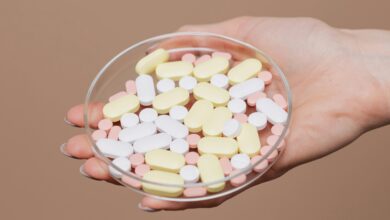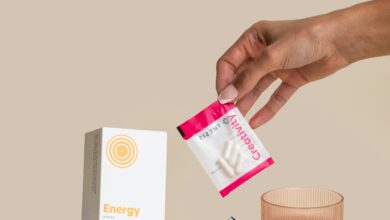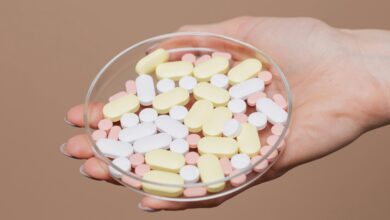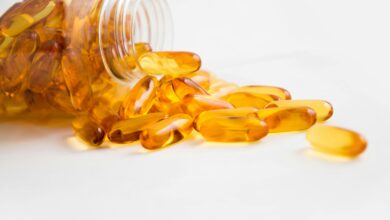The Role of Collagen in Skin Health
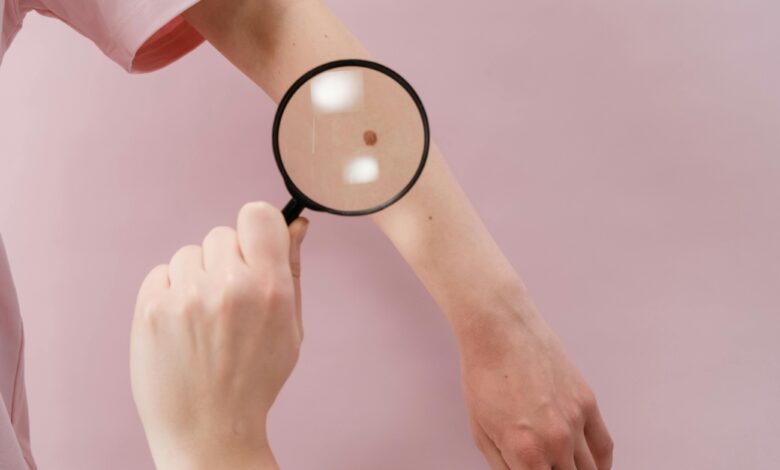
Collagen is often referred to as the “building block” of the skin, and for good reason. It is the most abundant protein in the human body, making up about 70-80% of the skin’s composition. Collagen provides structural support, elasticity, and resilience to the skin, playing a crucial role in maintaining its health and youthful appearance. As we age, collagen production naturally declines, leading to common signs of aging such as wrinkles, sagging skin, and loss of firmness.
In this article, we will explore the vital role collagen plays in skin health, how it functions, factors that affect collagen production, and ways to support and maintain healthy collagen levels.
What Is Collagen?
Collagen is a fibrous protein found in the extracellular matrix of the skin, as well as in bones, tendons, ligaments, and other connective tissues. In the skin, collagen works alongside elastin and hyaluronic acid to provide structure, flexibility, and hydration.
There are at least 28 types of collagen , but the majority of collagen in the skin consists of Type I, II, and III :
- Type I : The most abundant type, responsible for the skin’s strength and firmness.
- Type II : Primarily found in cartilage but also contributes to skin elasticity.
- Type III : Works with Type I to support skin structure and repair.
Collagen fibers form a dense network in the dermis (the second layer of the skin), giving the skin its smooth, plump, and youthful appearance.
How Collagen Supports Skin Health
1. Provides Structural Support
Collagen acts as the scaffolding of the skin, providing the framework that keeps it firm and taut. Without sufficient collagen, the skin loses its structural integrity, leading to sagging and wrinkles.
2. Promotes Elasticity
While elastin is primarily responsible for skin elasticity, collagen works in tandem with elastin to allow the skin to stretch and bounce back. This prevents fine lines and maintains a youthful complexion.
3. Enhances Hydration
Collagen helps retain moisture by supporting the skin’s natural barrier function. It works with hyaluronic acid to lock in hydration, keeping the skin soft, supple, and radiant.
4. Aids in Wound Healing
Collagen plays a key role in the skin’s healing process. It stimulates cell regeneration and tissue repair, helping wounds close faster and reducing the risk of scarring.
5. Protects Against Environmental Damage
Collagen helps shield the skin from environmental stressors like UV radiation and pollution. While it doesn’t replace sunscreen, healthy collagen levels can reduce the visible effects of photoaging, such as dark spots and wrinkles.
Factors That Affect Collagen Production
Several internal and external factors contribute to the decline of collagen production over time:
1. Aging
As we age, our bodies naturally produce less collagen. After the age of 20, collagen production decreases by about 1% per year , leading to thinner, drier, and less elastic skin.
2. UV Exposure
Prolonged exposure to ultraviolet (UV) rays breaks down collagen fibers and accelerates aging. This process, known as photoaging , causes premature wrinkles, pigmentation, and loss of firmness.
3. Poor Diet
A diet lacking in essential nutrients like vitamin C, zinc, and amino acids can impair collagen synthesis. Processed foods, sugar, and excessive alcohol consumption may also damage existing collagen.
4. Smoking
Smoking reduces blood flow to the skin, depriving it of oxygen and nutrients needed for collagen production. Additionally, chemicals in cigarettes break down collagen and elastin.
5. Stress
Chronic stress increases cortisol levels, which can degrade collagen and weaken the skin’s structure.
6. Pollution
Environmental pollutants generate free radicals that damage collagen and accelerate skin aging.
Signs of Collagen Loss
When collagen levels decline, the skin begins to show visible signs of aging, including:
- Fine lines and wrinkles
- Sagging skin
- Loss of elasticity
- Dryness and dullness
- Thinning skin
- Increased fragility and bruising
How to Support and Boost Collagen Levels
While collagen production naturally decreases with age, there are several ways to support and even boost collagen levels to maintain healthy, youthful-looking skin.
1. Dietary Changes
- Protein-Rich Foods : Include lean meats, fish, eggs, and plant-based proteins like beans and lentils, which provide the amino acids needed for collagen synthesis.
- Vitamin C : Essential for collagen production, vitamin C is found in citrus fruits, strawberries, bell peppers, and broccoli.
- Antioxidants : Berries, green tea, and dark chocolate combat free radicals that damage collagen.
- Omega-3 Fatty Acids : Found in fatty fish, walnuts, and flaxseeds, omega-3s help maintain skin hydration and protect collagen.
2. Collagen Supplements
Collagen supplements, available in powder, capsule, or liquid form, have gained popularity for their potential benefits. Hydrolyzed collagen peptides are easily absorbed by the body and may improve skin elasticity, hydration, and texture.
3. Topical Treatments
Skincare products containing collagen-boosting ingredients can enhance skin health:
- Retinoids : Stimulate collagen production and improve skin texture.
- Vitamin C Serums : Brighten the skin and promote collagen synthesis.
- Hyaluronic Acid : Locks in moisture and supports collagen function.
4. Lifestyle Adjustments
- Sun Protection : Use broad-spectrum sunscreen daily to prevent UV-induced collagen breakdown.
- Quit Smoking : Eliminate smoking to preserve collagen and improve overall skin health.
- Stay Hydrated : Drink plenty of water to keep the skin hydrated and support collagen function.
5. Professional Treatments
For more advanced collagen stimulation, consider professional treatments:
- Microneedling : Creates micro-injuries in the skin to trigger collagen production.
- Laser Therapy : Stimulates collagen renewal and improves skin tone.
- Chemical Peels : Remove damaged layers of skin, encouraging new collagen growth.
Real-Life Benefits of Supporting Collagen
Example 1: Improved Skin Elasticity
Sarah, a 45-year-old woman, incorporated a collagen supplement into her routine and noticed firmer, smoother skin within three months. Her dermatologist confirmed improved skin elasticity during a follow-up visit.
Example 2: Reduced Wrinkles
Tom, a 50-year-old man, started using a vitamin C serum and retinol cream nightly. Over six months, he observed a significant reduction in fine lines around his eyes and mouth.
Example 3: Enhanced Hydration
Emily, a 30-year-old with dry skin, added hyaluronic acid serums and increased her water intake. Her skin became noticeably plumper and more hydrated, thanks to better collagen support.

